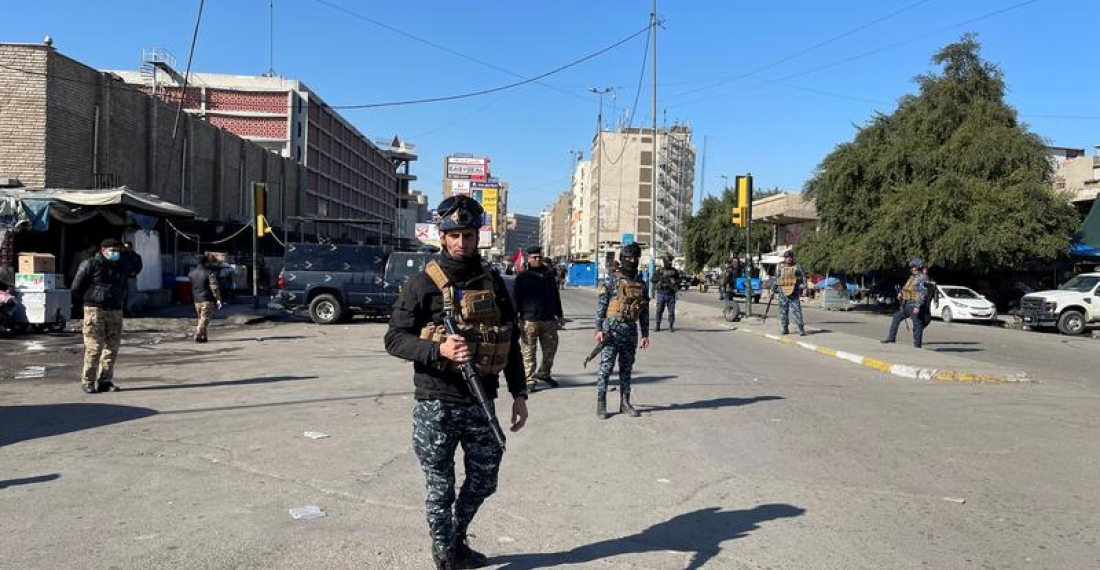Several bomb attacks over the last week have shocked the residents of the Iraqi capital, Baghdad. On Thursday, twin suicide bombings targeted a busy market killing at least 32 and wounding more than a hundred. The suicide bombings hit the Bab Al-Sharqi commercial area in central Baghdad. Blood was splattered on the pavement of the busy market amid piles of clothes and shoes. Officials described it as the first massive bombing in years The Health Ministry announced that all of its hospitals in the capital were mobilized to treat the wounded.
Maj. Gen. Tahsin Al-Khafaji, the spokesman for the Iraqi Joint Operations Command, said the first suicide bomber cried out loudly that he was ill in the middle of the bustling market, prompting a crowd to gather around him and that’s when he detonated his explosive belt. The second detonated his belt shortly after. Al-Khafaji said that the act was perpetrated by an ISIS sleeping cell which wanted to prove its existence after suffering many blows in military operations to root out the militants. ISIS has later confirmed its responsibility for the attack.
On Saturday, Iraqi authorities announced that 3 rockets had landed in the vicinity of Baghdad International Airport without causing any casualties. The Iraqi Security Media Centre said in a statement that two rockets landed outside the airport, while the third landed on a citizen's house in the Al-Jihad neighbourhood, west of the capital, causing only material damage.
No one has claimed responsibility for the airport attack, but the airport, which includes the American Victoria base, has in the past been subject to multiple missile attacks carried out by Shiite armed factions close to Iran.
In response to the attacks, the Counter-Terrorism Service announced in a statement the launch of the "Revenge of the Martyrs" operation in Baghdad and other provinces to pursue ISIS operatives. Prime Minister Mustafa Al-Kadhimi confirmed yesterday that his government will not allow a new security breach, adding that what happened is evidence of a weakness that must be addressed urgently.
The attacks came days after Iraq’s government unanimously agreed to hold early elections in October. Al-Kadhimi had announced in July that early polls would be held to meet the demands of anti-government protesters.
Iraq is grappling with a severe economic crisis brought on by low oil prices that has led the government to borrow internally and risk depleting its foreign currency reserves. The Central Bank of Iraq devalued Iraq’s dinar by nearly 20 percent last year to meet spending obligations.






